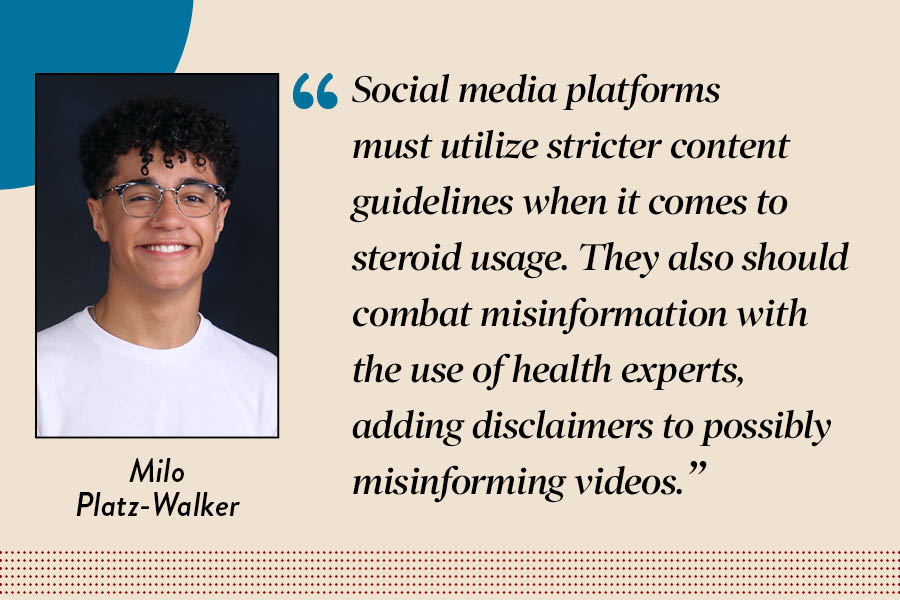As someone who regularly uses the gym and is dedicated to a healthy lifestyle, I sit down to scroll through TikTok. Tailored to my personal interests, my feed lights up with fitness influencers promoting the newest ways to perfect your physique. Among these videos, I begin seeing popular fitness influencers openly sharing their use of steroids. In addition to this, they share the benefits of enhancing their physique with seemingly no downside. But these individuals aren’t just showcasing their physiques, they’re openly discussing their steroid cycles, tempting a young and impressionable mind with a seemingly risk-free shortcut.
Welcome to the world of TikTok’s gym culture, where the glorification of steroids is casting a dark shadow over an entire generation’s perception of fitness and health.
Influencers glorifying steroids must understand their impressionable audience and must educate them on the drug’s downsides, while social media platforms, like TikTok, should enforce stricter content guidelines and discourage content promoting steroid abuse.
Tiktok’s “gym culture” could initially be seen as a positive space for people of all ages to educate themselves on new ways to lift weights. I could observe the fitness journeys of people from various body types and learn more about the gym. However, over time, videos featuring enhanced physiques and steroids began gaining popularity. Various forms of steroids, including testosterone (test) and trenbolone (tren), gradually became more popular on social media.
With hashtags such as “tren” and “roids” having billions of views on TikTok, fitness influencers with enhanced physiques have a platform to speak to their steroid cycles and doses. Many of these videos solely mention the benefits yet fail to address the downsides and risks of the drugs. This promotion of steroids as a means to achieve fitness goals raises questions about the impact on easily influenced young viewers.
In addition to this, relentless exposure to unattainable and enhanced physiques can cause body image issues among teenage boys. This exposure can lead to feelings of self-doubt and unrealistic expectations, which can take shape in eating disorders or body dysmorphia.
This glorification of steroids on social media is concerning for multiple reasons. Steroids come with many physical and psychological health risks, especially for those still developing. By portraying them as a shortcut to the ideal physique, these influencers are promoting dangerous behavior to their young and susceptible followers.
The solution to this problem relies on both the social media platforms as well as the influencers themselves. Social media platforms must utilize stricter content guidelines when it comes to steroid usage. They also should combat misinformation with the use of health experts, adding disclaimers to possibly misinforming videos. Influencers need to have a better understanding of their audience and the potential impact of their content. It is their moral responsibility to educate viewers about the downsides and risks of anything they choose to promote on their page.























































